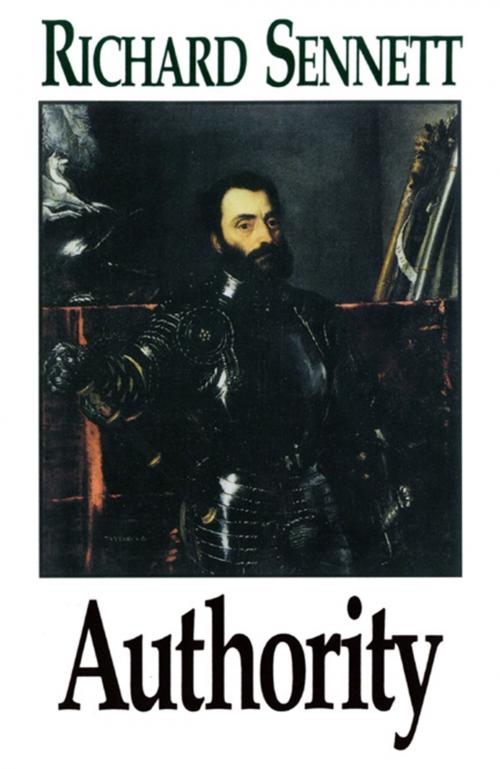Authority
Nonfiction, Social & Cultural Studies, Political Science, Politics, History & Theory, Social Science, Sociology| Author: | Richard Sennett | ISBN: | 9780393350937 |
| Publisher: | W. W. Norton & Company | Publication: | June 17, 1993 |
| Imprint: | W. W. Norton & Company | Language: | English |
| Author: | Richard Sennett |
| ISBN: | 9780393350937 |
| Publisher: | W. W. Norton & Company |
| Publication: | June 17, 1993 |
| Imprint: | W. W. Norton & Company |
| Language: | English |
This book is a study of both how we experience authority and how we might experience it differently. Sennett explores the bonds that rebellion against authority paradoxically establishes, showing how this paradox has been in the making since the French Revolution and how today it expresses itself in offices, in factories, and in government as well as in the family. Drawing on examples from psychology, sociology, and literature, he eloquently projects how we might reinvigorate the role of authority according to good and rational ideals.
A master of the interplay between politics and psychology, Richard Sennett here analyzes the nature, the role, and the faces of authority—authority in personal life, in the public realm, authority as an idea. Why have we become so afraid of authority? What real needs for authority do we have—for guidance, stability, images of strength? What happens when our fear of and our need for authority come into conflict? In exploring these questions, Sennett examines traditional forms of authority (The father’s in the family, the lord’s in society) and the dominant contemporary styles of authority, and he shows how our needs for, no less than our resistance to, authority have been shaped by history and culture, as well as by psychological disposition.
This book is a study of both how we experience authority and how we might experience it differently. Sennett explores the bonds that rebellion against authority paradoxically establishes, showing how this paradox has been in the making since the French Revolution and how today it expresses itself in offices, in factories, and in government as well as in the family. Drawing on examples from psychology, sociology, and literature, he eloquently projects how we might reinvigorate the role of authority according to good and rational ideals.
A master of the interplay between politics and psychology, Richard Sennett here analyzes the nature, the role, and the faces of authority—authority in personal life, in the public realm, authority as an idea. Why have we become so afraid of authority? What real needs for authority do we have—for guidance, stability, images of strength? What happens when our fear of and our need for authority come into conflict? In exploring these questions, Sennett examines traditional forms of authority (The father’s in the family, the lord’s in society) and the dominant contemporary styles of authority, and he shows how our needs for, no less than our resistance to, authority have been shaped by history and culture, as well as by psychological disposition.















